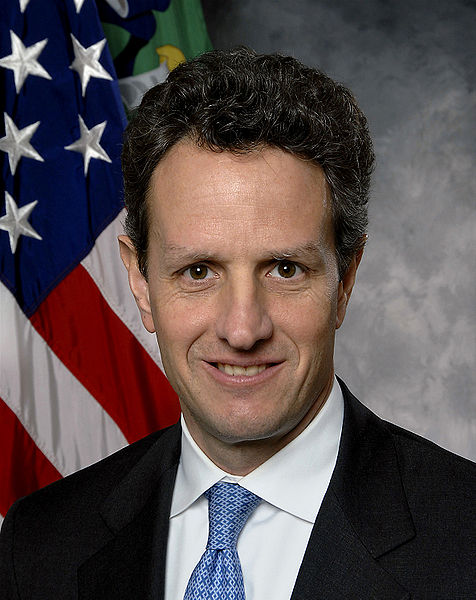
In a quote he offered to The New York Times, one which was employed in a story that appeared on April 26th, former US Treasury Secretary Timothy Geithner suggests a revisionist account of a piece of recent history, the Home Affordable Modification Program (HAMP).
Within hours, Neil Barofsky took note of this revisionism. He told his twitter folowers, "Geithner seems to deny account told by both me and @senwarren on HAMP."
So I sat up and took notice.
Barofsky, a former Treasury official, wrote a book on the rescue of Wall Street, in 2012, simply named, Bailout. HAMP is only one aspect of that book, but Barofsky does describe Geithner in unflattering terms.
Geithner saw HAMP not as a way of helping besieged homeowners, but as "an aid to the banks, keeping the full flush of foreclosures from hitting the financial system all at the same time."
The idea was to extend and pretend: extend the time in which homeowners are allowed to hang on to the negative-equity homes, and pretend this is to give them another chance, while it was in fact just to let banks that had already decided whom to foreclose on take their time in doing so. Like "foaming the runway."
Treasury under Geithner, Barofsky said, had absolutely no interest in holding mortgage servicing companies "accountable for their incompetence and abuse of home owners."
So it is unsurprising that Geithner dissents from this view (which has been echoed by Elizabeth Warren, now a US Senator).
Geithner says, "The housing programs were designed to help as many Americans as possible stay in their homes, refinance their mortgages and avoid further declines in the value of their homes." He also said that he regrets that it was impossible to "prevent all damage from the crisis."
It sounds like he is denying that he ever made the kind of remark Barofsky attributes to him. Yet this is still something of a non-denial denial. Its just, "things are not what they seem."
Geithner has a book of his own coming out in May. He may be saving his own account of the particulars for that.
Comments
Post a Comment